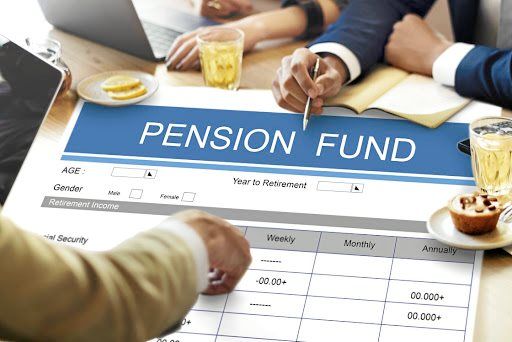Hello! I'm your AI-powered assistant for the Molo Retirement Fund Trustee Portal. I'm here to help you navigate the complexities of your role, providing reliable and consistent guidance on trustee responsibilities, governance, and compliance. I streamline access to essential information, empowering you to make informed decisions for your fund.
Can you give me an overview of a retirement fund trustee's core responsibilities in South Africa?
Where can I find information on the latest regulatory updates or compliance requirements for SA pension funds?
I'm new to this. What's a good starting point for learning about retirement fund investments?
Legal name
Alternative name
Founded year
Number of employees
Prefer not to say
Company type
Corporation
Industry
Area served
hennie@molo.page
Phone
0718607703
Molo Retirement Fund Trustee
15 Jun 2025

Section 13A and the Trustee's Role in Employer Contribution Compliance
Contributions are the lifeblood of any retirement fund. Section 13A of the Pension Funds Act is a vital protection mechanism, ensuring that employers faithfully remit member and employer contributions to the fund. As a trustee, you are on the frontline of enforcing this critical provision. This module will equip you with a detailed understanding of Section 13A, empowering you to actively monitor compliance, take decisive action against defaulters, and ultimately safeguard the financial future of every member.
1. Understanding Section 13A
Section 13A of the Pension Funds Act, 1956, places a strict legal obligation on employers to pay over all retirement fund contributions deducted from employees' salaries, as well as their own employer contributions, to the fund. It also mandates the timely submission of relevant information.
Purpose of Section 13A:
- To protect members' retirement savings from employer mismanagement or default.
- To ensure the integrity and financial soundness of retirement funds.
- To provide clear enforcement mechanisms against non-compliant employers, including personal liability for directors.
Why is it Critical? Unpaid or late contributions have severe consequences:
- Loss of Retirement Savings: Directly impacts members' accumulated value.
- Loss of Risk Benefits: If premiums for group life, disability, or funeral cover are not paid, members (and their families) can lose vital insurance cover.
- Fund Instability: Affects the fund's actuarial soundness and ability to meet future liabilities.
- Legal and Reputational Damage: For both the employer and the fund itself.
2. Key Timelines and Information Submission
Section 13A and its associated Regulation 33 stipulate clear timelines that trustees must monitor.
- Contribution Payment Deadline:
- All contributions (employee deductions and employer contributions) for a given month must be paid over to the fund by the 7th day of the following month.
- Example: Contributions for January must be paid by 7 February.
- Minimum Information Submission Deadline:
- The employer must submit minimum information (e.g., contribution schedules detailing who paid what) to the fund by the 15th day of the month.
- This information allows the administrator to correctly allocate contributions to individual member accounts.
Trustee's Role: Trustees must be aware of these deadlines and ensure that the fund's administrator has robust systems in place to track compliance and identify non-payment or late payment immediately.
3. Roles and Responsibilities in Compliance Monitoring
Section 13A assigns specific duties to various parties to ensure a robust monitoring and enforcement chain.
- Administrator's Role:
- Within 15 days after contributions are due (i.e., by the 22nd of the month), the administrator must reconcile the contributions received against the schedules and report any non-compliance or discrepancies to the fund's Principal Officer or monitoring person.
- Principal Officer (PO) / Monitoring Person's Role:
- Within 7 days of receiving the administrator's report, the PO/monitoring person must report directly to the Board of Trustees regarding Section 13A compliance.
- They also have a duty to bring any infringements (unpaid contributions) to the personal attention of each affected member in writing. This is crucial for transparency and member protection.
- Board of Trustees' Role:
- Oversight: The board holds ultimate responsibility for ensuring Section 13A compliance. They must review the reports from the PO/monitoring person and administrator, and ensure appropriate action is being taken.
- Direct Member Notification: Trustees must ensure that affected members are indeed notified personally and in writing about non-compliance.
- Decision-Making: The board must approve the escalation steps as non-compliance persists.
- Recovery Action: Authorise legal action for recovery of outstanding contributions and interest.
4. Escalation Process for Non-Compliance
Section 13A mandates a clear, escalating process for addressing employer non-compliance. Trustees must understand and enforce these steps:
- Initial Notification (Informal): Administrator/PO contacts the employer immediately upon identifying non-payment.
- Formal Notice (within 30 days): If contributions remain unpaid, a formal written demand is sent to the employer.
- Persistent Non-Compliance (after 90 days):
- If contributions remain unpaid for 90 days from the due date, the Principal Officer/monitoring person must report the matter, with detailed information, to the South African Police Service (SAPS) for criminal investigation.
- Simultaneously, the PO/monitoring person must inform the FSCA of this report within 14 days after the 90-day period expires.
- Affected members must again be informed in writing of this continued contravention and the reporting to SAPS/FSCA within 14 days.
- Recovery Agreements: Funds should enter into agreements with employers for the recovery of outstanding contributions. Any recovered amounts must be paid into the fund's bank account within 7 working days.
5. Consequences of Non-Compliance
The ramifications of Section 13A non-compliance are severe and far-reaching for all involved parties.
- For Employers:
- Fines and Penalties: Significant administrative penalties levied by the FSCA.
- Interest: Employers are liable for interest on overdue contributions.
- Criminal Prosecution: Directors or responsible persons can face criminal charges and imprisonment for non-payment.
- Civil Liability: The fund can sue the employer to recover outstanding amounts.
- Reputational Damage: Severe impact on the employer's standing and trust with employees and the public.
- For the Fund:
- Administrative Burden: Increased effort in tracing, reporting, and recovery.
- Legal Costs: Expenses incurred in pursuing defaulting employers.
- Member Complaints: Trustees face complaints from members whose benefits are impacted.
- For Members:
- Reduced Retirement Savings: Direct loss of contributions and associated investment growth.
- Loss of Group Risk Benefits: If contributions (which often include risk premiums) are not paid, members may lose their group life, disability, or funeral cover, leaving them and their families vulnerable.
- Uncertainty and Distress: Members face anxiety about their financial future.
Personal Liability
Section 13A is unique in its provision for personal liability for individuals responsible for the employer's financial affairs.
- Directors or any person who is regularly involved in the management of the employer's overall financial affairs can be held personally liable for unpaid contributions.
- The fund must request the employer to identify such a responsible person. If the employer fails to do so, all directors or members of the employer's governing body may be deemed personally liable.
- This personal liability acts as a strong deterrent against employer default and empowers funds to pursue individuals directly, rather than just the defaulting company.
Trustee Responsibilities: A Summary
Your role as a trustee in enforcing Section 13A is proactive and critical. It encompasses:
- Vigilance: Diligently monitoring all contribution payments and schedules.
- Swift Action: Promptly addressing any instances of non-compliance.
- Strict Adherence to Process: Following the mandated escalation and reporting timelines without fail.
- Member Protection: Ensuring affected members are fully informed about the status of their contributions.
- Enforcement: Taking decisive legal action where necessary to recover outstanding contributions.
- Oversight: Holding the Principal Officer and Administrator accountable for their Section 13A duties.
By robustly enforcing Section 13A, you directly protect the foundational financial security of every fund member.
Next steps
If you have any questions or need assistance, our team is ready to help.
